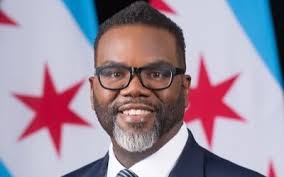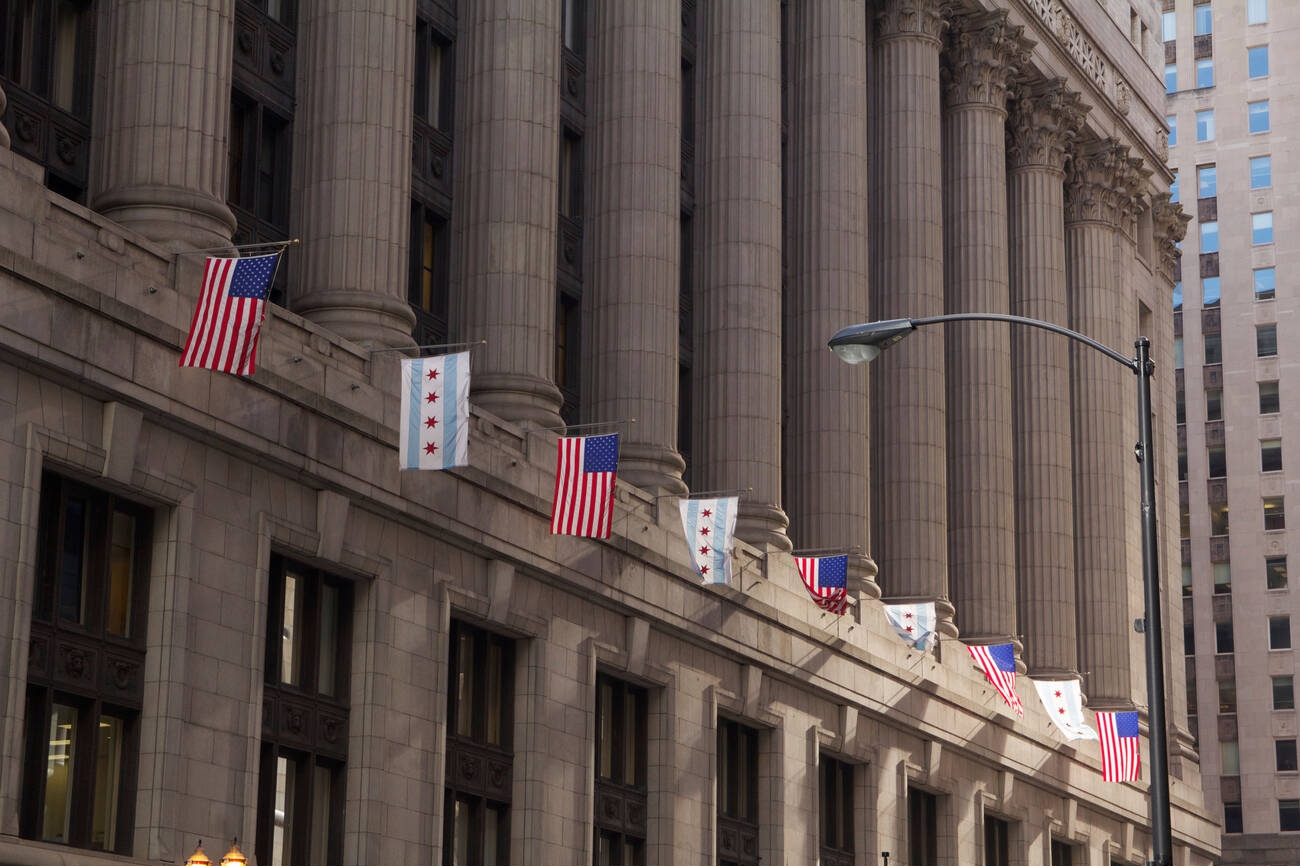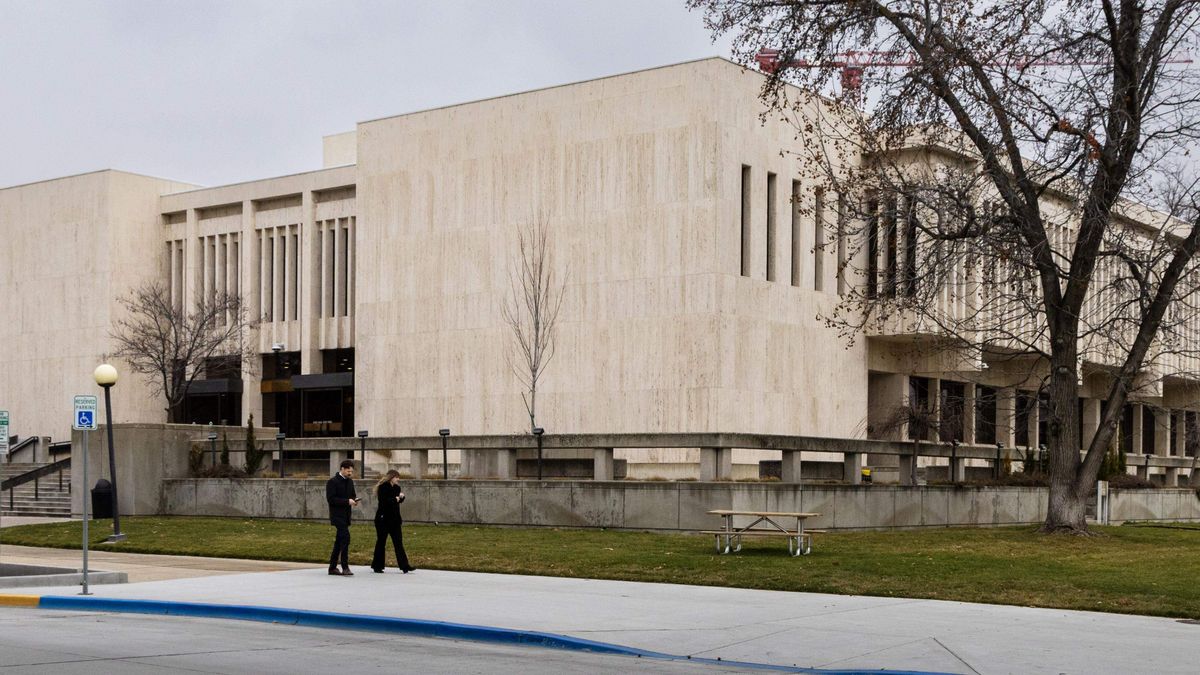By Jake Sheridan
Chicago Tribune
(TNS)
The Chicago City Council emphatically voted down Mayor Brandon Johnson’s plan to hike property taxes by $300 million Thursday, creating a yawning hole in the city’s 2025 budget that must now be closed.
Aldermen voted 50 to 0 in a rare unanimous roll call vote to discard the tax hike in a special meeting that lasted just minutes and included no debate. The council’s decisive rejection gives aldermen leverage in ongoing budget negotiations: Whatever comes next, it won’t be Johnson’s original plan.
The property hike proved wildly unpopular with constituents, aldermen have said. But its demise forces the council and mayor to now come up with new answers. While many aldermen joined the mayor to argue Chicago must find new revenue and avoid layoffs, others said the body must make major budget cuts.

The mayor, who campaigned on a promise to not raise property taxes, initially framed doing so as a painful, but necessary move to prevent mass layoffs of police officers, street sweepers and other city workers.
He called for it at length in a City Hall speech announcing his budget, in news conferences and to the Tribune’s editorial board. But Johnson backed away from supporting the revenue-raising idea in recent days as it became clear the council would sharply rebuff his plans.
In disowning the tax increase, he described the tax hike as a ploy to “get people’s attention” at a news conference Tuesday where he called himself the city’s “collaborator in chief” to highlight negotiations with aldermen.
“And so now that we have the attention of everyone, I’ve said from the very beginning, this is a proposal,” Johnson said.
Aldermen swiftly coalesced around rejecting Johnson’s tax hike after it was introduced. One of the mayor’s top progressive allies gathered reporters to reject it just moments after the mayor finished his spending plan speech, and 29 council member banded together last week to call Thursday’s meeting with plans to vote the tax hike down.
With a new gap, what balances the budget?
Thursday’s vote means the City Council and Johnson must now plug a $300 million gap to balance the city’s budget, a legal requirement.
In recent private meetings, Johnson’s administration has presented aldermen with a buffet of options to close that gap: diverting COVID-19 funds earmarked for special projects, hiking an array of fees and dropping the city’s planned advance pension payment, a move ratings agencies have warned against.
But Johnson has refused to publicly say what his administration is recommending aldermen carry out the unpleasant task of raising revenue. Asked by the Tribune Tuesday to name one idea he recommends, Johnson said “this is an ongoing negotiation.”
“Look, I know you are trying to pin me down to one,” he said. “There are a plethora of ideas that we will consider. Again, it’s my value system to invest in people. We are negotiating the details of my values.”
The $300 million gap he and aldermen must fill could grow. Many aldermen are pushing for changes that would raise costs or lower revenue, like dropping a planned hike to taxes on wholesale alcohol. Some initiated an effort Thursday to get money designated for acoustic gunshot detection technology into the budget.
Meanwhile, Johnson’s plan to save money by cutting dozens of vacant Chicago Police Department jobs tied to implementing a federal consent decree could prove unworkable. Illinois Attorney General Kwame Raoul wrote Johnson Tuesday to “strongly urge” he not carry it out or risk the city being held in contempt of court for failing to comply with the consent decree.
Despite Johnson’s reluctance to say what revenue-raisers he supports, one idea did come forward Thursday with the mayor’s apparent support: a new tax on products derived from hemp.
Ald. William Hall, 6th, introduced an ordinance to add taxes and age restriction on legal CBD and THC-alternative products, some of which mirror the effects of marijuana.
“The priority is first safety and then second sustainable revenue,” Hall, picked by Johnson to head the City Council Revenue Subcommittee created last fall, told reporters. “We don’t want the bogus guys to continue to put our children at risk.”
Asked if there would also be further regulations like the testing requirements that affect the state’s budding marijuana industry, Hall said the age restriction proposal is a “first step” and welcomed the federal and state government to add more regulations.
City budget officials estimate the proposal would raise $19.3 million next year and bring in $175.1 million by 2029.
________
©2024 Chicago Tribune. Visit chicagotribune.com. Distributed by Tribune Content Agency LLC.
Thanks for reading CPA Practice Advisor!
Subscribe Already registered? Log In
Need more information? Read the FAQs




